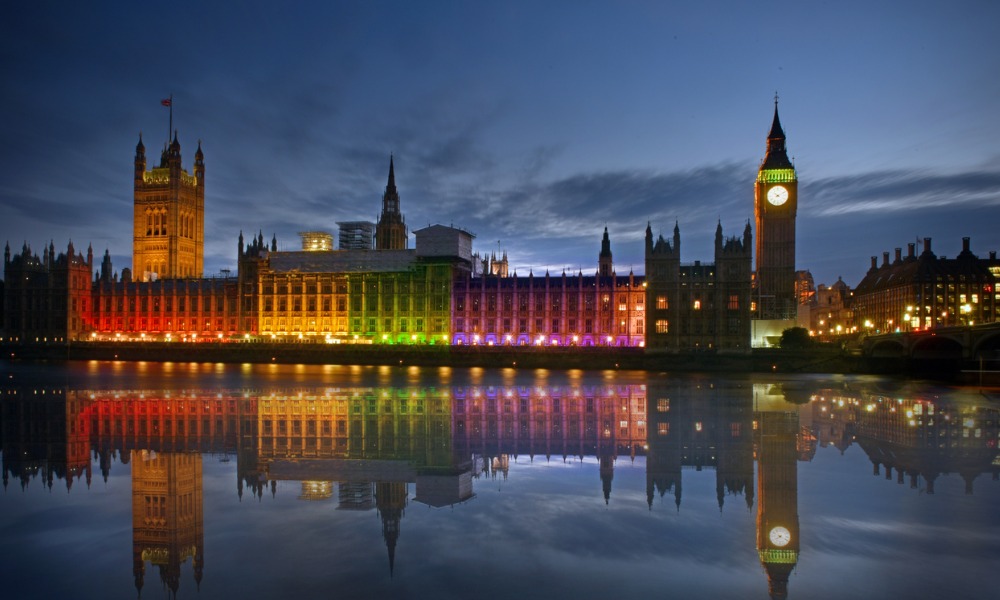
The UK has fallen behind in several areas, including gender legal equality, asylum, and hate crimes

The latest report from ILGA-Europe, an independent international non-governmental organization, has highlighted a significant regression in LGBTQI+ human rights in the UK, the International Bar Association (IBA) reported.
The reported urged the newly elected government of Prime Minister Sir Keir Starmer to reverse this trend. ILGA-Europe’s annual benchmarking tool, the Rainbow Map and Index, ranks 49 European countries based on their legal and policy situation for LGBTQI+ people. In the 2024 report, the UK dropped to 16th place with a score of 51.88 percent, a steep decline from its top position in 2015 when it scored 86 percent.
Campaigners are calling on the new UK government to address these alarming findings. M Ravi, LGBTQI+ liaison officer for the IBA Human Rights Law Committee, emphasized the urgency of maintaining legal protections for fundamental rights, particularly for transgender individuals. "Only legal protections can ensure that fundamental rights are guaranteed," Ravi stated.
The report identified key areas where the UK has fallen behind, including gender legal equality, asylum, and hate crimes. It noted a crackdown on trans rights in 2023. It criticized the UK government’s veto of the Scottish Gender Recognition Bill, arguing it would adversely affect reserved matters under the Equality Act 2010.
The UK Home Office's statistics revealed a mixed picture: while homophobic hate crimes decreased by 6 percent in England and Wales in 2023, transphobic hate crimes rose by 11 percent, the highest number since 2012. The 2024 report attributes the increase in transphobic hate crimes partly to negative media reporting and discussions by some elected officials.
Alexander Maine, a senior lecturer at The City Law School at City, University of London, highlighted the UK's previous leadership in LGBTQI+ rights, with milestones such as equalizing the age of consent, civil partnerships, same-sex marriage, and anti-discrimination laws. However, he noted recent calls to delegitimize Pride campaigns, inclusive education, and diversity schemes, raising concerns about the UK's commitment to LGBTQI+ rights.
Other Western European countries also saw declines. Sweden, France, and the Netherlands dropped to 12th, 13th, and 14th places, respectively, in the 2024 report. In contrast, Malta ranked first with 87.84 percent, and Greece, with a previously patchy record, ranked 7th with 70.78 percent.
The global context shows a troubling trend in LGBTQI+ rights regression. Uganda’s Anti-Homosexuality Act, passed in May 2023, threatens the death penalty for "aggravated homosexuality," while Iraq’s new law, passed in April, criminalizes same-sex relationships with prison terms.
Western governments, including the UK, have condemned these actions. However, Maine warned against complacency within the UK, emphasizing the need to address domestic issues such as the hostile environment for trans people.
The UK's recent change of government offers a potential turning point. The government's manifesto includes pledges for a trans-inclusive conversion therapy ban, a new gender recognition law, making LGBTQI+ hate crimes a specific offence, and implementing the Cass Review findings on gender-identity services. In the King's Speech in mid-July, the Prime Minister acknowledged the long-overdue promise to ban conversion therapy, committing to finally bringing forward a draft bill.
Campaigners remain hopeful that the new government will follow these promises and restore the UK's leadership in LGBTQI+ rights. "I urge the new government to hold steadfast in its commitment to LGBTQ+ rights," Ravi said.